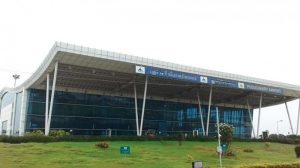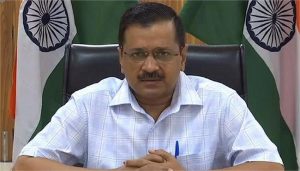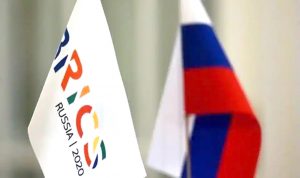
Wednesday, October 07, 2020
THE HINDU NEWSPAPER IMPORTANT ARTICLES 07.10.2020

UPSC Prelims 2020 Answer Key from various Institute
UPSC Prelims 2020 Answer Key from various Institute
| Click to Download |
| Click to Download |
| Click to Download |
| Click to Download |
| Click to Download |
| Click to Download |
| Click to Download |
Vision IAS Prelims GS Paper 1 Analysis 2020 PDF
Vision IAS Prelims GS Paper 1 Analysis 2020 PDF
Tuesday, October 06, 2020
Daily Current Affairs, 06th October 2020

1) Wildlife Week is celebrated from 2nd to 8th October

•Wildlife Week is annually celebrated across India between 2nd to 8th October with an aim to protect and preserve the flora and fauna of India. The first Wildlife Week was observed in 1957. The Wildlife Week 2020 is celebrated from 2nd October to 8th October 2020. Wildlife Week 2020 marks the 66th Wildlife Week which is celebrated under the theme RoaR (Roar and Revive) – Exploring Human-Animal Relationships.
2) Puducherry airport becomes AAI’s first 100% solar-powered airport

•The Puducherry airport has become the first airport of the Airports Authority of India (AAI) which is entirely solar-powered. The 500KWp ground-mounted solar power plant was commissioned on 2nd October 2020. The approx cost of the plant is Rs 2.8 crore. With becoming absolutely power-neutral, the Puducherry airport will be able to meet its entire power requirement through the solar power plant.
3) CM Arvind Kejriwal launched ‘Yudh Pradushan Ke Virudh’ campaign

•Delhi CM Arvind Kejriwal has announced the launch of the anti-pollution campaign ‘Yudh Pradushan Ke Virudh’ to reduce the pollution level in Delhi. An anti-dust campaign is being initiated by the Delhi government to settle the dust.
•As part of the campaign, a technology developed by Pusa Agriculture Institute would be used to curb the menace of stubble burning. The government will launch a photo-based app ‘Green Delhi’ for complaints related to pollution. This App will be launched for citizens before the end of this month.
4) China to send first-ever ‘asteroid mining robot’ into space

•An IEEE Spectrum report, the Beijing-based company is set to send the world’s first mining robot named ‘asteroid mining robot’ into space by November 2020 to identify and extract resources. The mining robot will be launched into space by a Chinese Long March series rocket.
•The 30-gram spacecraft, NEO-1, is likely to be launched as a secondary payload on a Chinese Long March rocket. This company also has another mission, Yuanwang-1 (‘Look up-1’), nicknamed ‘Little Hubble’, which is to be launched by late 2021 or early 2022.
5) DRDO successfully flight tests “Supersonic Missile Assisted Release of Torpedo”

•The Defence Research and Development Organisation (DRDO) has successfully flight tested the “Supersonic Missile Assisted Release of Torpedo” (SMART) from Wheeler Island off the coast of Odisha. All the mission objectives including missile flight up to the range and altitude, separation of the nose cone, the release of Torpedo and deployment of Velocity Reduction Mechanism (VRM) have been met perfectly.
6) IACC presents lifetime achievement award to Ratan Tata

•The Indo-American Chamber of Commerce (IACC) has presented the lifetime achievement award to business icon Ratan Tata for his pioneering role in the Business Relations of India-USA and for his lifetime achievement in Global Leadership. This award was announced in the virtual event of IACC “COVID Crusader Award-2020”. This is the 1st time IACC conferred the Lifetime Achievement award to any individual.
•Tata, who grew the revenues for India’s largest conglomerate ‘The Tata Group’ to nearly USD 100 billion by 2011-12, remains an influential industrialist, philanthropist and humanitarian to the day.
7) 12th BRICS Summit to be held on 17 November virtually

•The 12th BRICS Summit is scheduled to be held on 17th November 2020 via video conference. This is the first time in the history of the forum that the meeting will be held virtually, due to the global COVID pandemic. The Summit is being held under the Chairmanship of Russia.
•The BRICS Summit will focus on further strengthening cooperation among the member states amid the Covid-19 crisis. The theme of the Meeting of the Leaders of BRICS countries is “BRICS Partnership for Global Stability, Shared Security and Innovative Growth”. During 2020, the five countries in the grouping continued their close strategic partnership on three major pillars: peace and security, economy and finance, cultural and people-to-people exchanges
8) Nobel Prize in Physics 2020 announced

•The Nobel Prize in Physics 2020 was divided, one half awarded to Roger Penrose for the discovery that black hole formation is a robust prediction of the general theory of relativity. The other half jointly to Reinhard Genzel and Andrea Ghez for the discovery of a supermassive compact object at the centre of our galaxy.
•The Nobel Prize in Physics is awarded by The Royal Swedish Academy of Sciences, Stockholm, Sweden.
9) Delhi’s Deputy CM Manish Sisodia launches a book “Bapu-The unforgettable”

•On the occasion of the 151st Birth Anniversary of Mahatma Gandhi, the Deputy Chief Minister of Delhi, Manish Sisodia has launched the coffee-table book titled “Babu – The Unforgettable” over the virtual event. This virtual event was organised by the Delhi Archives & Department of Art, Culture and Language, Government of Delhi. The department also organised a webinar on “Footprints of Gandhi Ji in Delhi”.
10) “Baahubali” series author Anand Neelakantan pens debut kids’ book

•The author of Baahubali series, Anand Neelakantan has authored his first kid’s book titled “The Very, Extremely, Most Naughty Asura Tales for Kids”, published by Puffins Publishers Private Limited under the Ministry of Corporate Affairs.
The HINDU Notes – 06th October 2020



